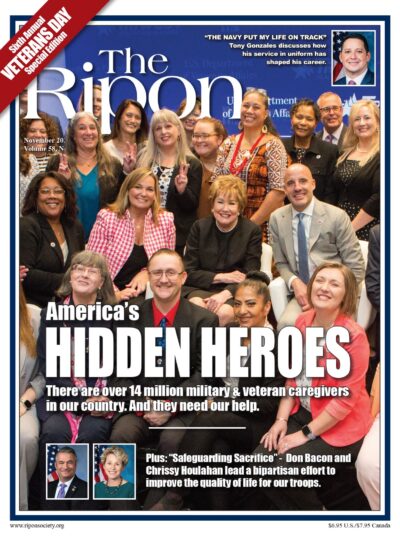
As we approach Veterans Day, we should take the time, at least this one special day, to thank those who have served and sacrificed for our freedom and way of life. We expect much of them and their families and should do our best to recognize and appreciate them when and how we can.
An important way to show them our support is by providing the best possible benefits. One such benefit, on-base grocery stores – or commissaries in military-speak – is behind the times and in need of modernization.
Commissaries were originally established to make sure service members and their families had access to American goods in austere locations. It is now a service at virtually all military installations and important to the nation’s veterans. It should be a service worthy of their service and sacrifice. It currently is not. But it could be, if we let go of the way of the past.
Commissaries are expensive for the taxpayer (costing over $1.5 billion annually) while they struggle to provide the selection, innovative services, quality, and prices already available in the commercial market.
Right now, the defense commissaries, run by the Defense Commissary Agency (DeCA), are expensive for the tax payer (over $1.5 billion annually) while they struggle to provide the selection, innovative services, quality and prices already available in the commercial market. Reflecting dissatisfaction with the commissary benefit, more and more patrons are shopping elsewhere. As DeCA tries to increase its sales, the cost to the taxpayer keeps going up. We can’t really expect the commissaries to keep up with the pace of change we have come to expect in popular stores, at least not while they are run by the government.
Much has changed in the commercial marketplace over the last several decades. With online ordering, home deliveries and curbside pick-up options, we don’t have to physically do our shopping inside brick-and-mortar stores at all anymore. These same options we all have should also be available to commissary patrons.
The solution is easy. Transition the commissaries to operate like commercial stores by having them run by commercial grocers. Change can be scary, and we want to protect this benefit for service members, their families, and retirees. And there is no shortage of misinformation out there on what such an improvement to this important benefit would mean for current suppliers or locations outside the United States. But there is a solution for that too.
We could just try it and prove it works before making a full change to unleash the commissaries from government control. The government could, and immediately should, use the free market to leverage commercial supply chains, distribution networks and management expertise, to run a test comparing the commissary benefit provided by DeCA to a top ten commercial supermarket.
The government should use the free market to leverage commercial supply chains, distribution networks, and management expertise to run a test comparing the commissary benefit to a top 10 commercial alternative supermarket.
The test would include independently evaluated data to see if a supermarket chain can operate grocery stores on military bases more efficiently and deliver greater savings, quality and selection. And it should do all this without needing over a billion dollars annually in taxpayer funds.
We would all likely be willing to keep paying for this important benefit if our military and veterans really needed it to get the service they deserve. But, if the defense commissaries can be operated even better without the subsidy, while maintaining the discount that service members and veterans expect to receive, we could use the saved tax payer dollars for important force protection capabilities, or needed maintenance on military housing, or any number of other things our nation needs for its security.
Top rated supermarkets are available to participate in a no cost test pilot. Together these providers operate 7,500 stores, with over $80 billion in annual sales. For comparison, DeCA operates 177 stores in the U.S. with $4 billion in sales. Bulk buying power would provide the commissaries with lower prices and offer greater selection. Key services and attributes such as employment opportunities for families, on-site free childcare for commissary shoppers, and expanded store hours would be included. Data collection would also encompass customer satisfaction and be overseen by a top-ranked accounting firm.
There should be no resistance to improving the commissary benefit in the United States and even more importantly overseas where shopping options for military personnel and their families are more limited. Those who serve and have served the nation in uniform deserve the best from us. As we think of them this Veterans Day, we can also tangibly show our support by making sure the commissaries are modern and self-sufficient.
Elaine McCusker is a senior fellow at the American Enterprise Institute (AEI). She previously served as the Pentagon’s acting undersecretary of defense (comptroller).




